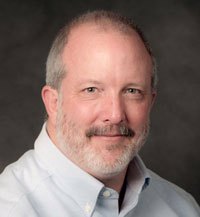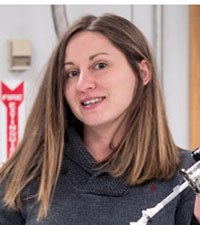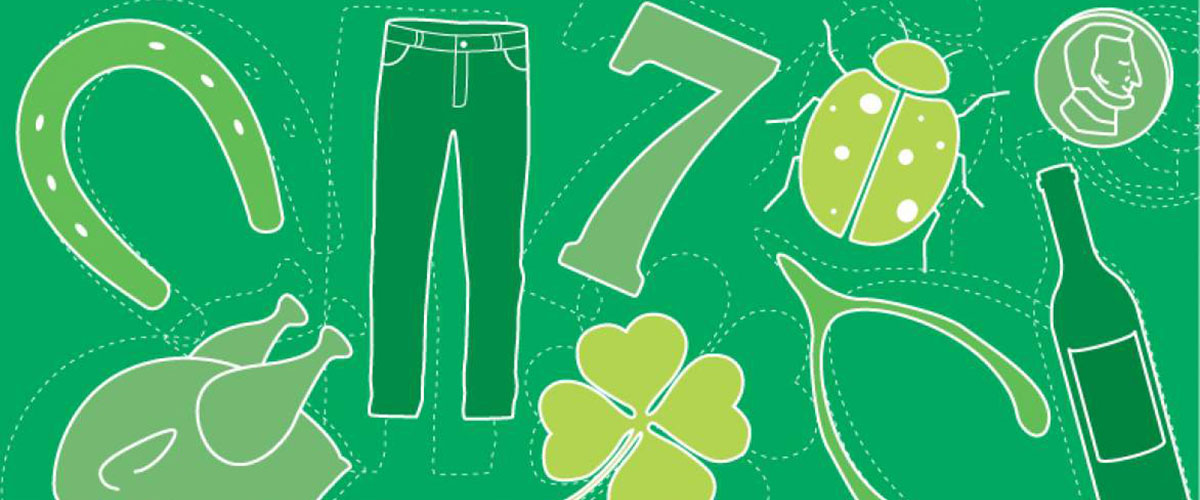Get your four-leaf clover and rabbit’s foot ready. Because who couldn’t use a little extra luck on St. Patrick Day (or any day) at the National High Magnetic Field Laboratory?
Wait — luck in the land of science?
Absolutely! "I don't think anyone counts on being lucky, but luck happens all the time," says Eric Palm, a physicist and deputy director of the MagLab. "When it happens, you better accept it."
Not that you'll see Palm or any other scientist at the lab counting on their crossed fingers or knocked-on wood. But many concur that luck — of a sort — can play a role in research. Although they experience and interpret it in a variety of ways — hardly surprising for such an international, interdisciplinary institution — they all view the phenomenon through a strictly scientific lens.
Science superstitions
Historically, science is no stranger to luck. The good luck stories abound — about the broken piece of equipment, the random action, the chance occurrence preceding a wonderful discovery.
Then there are the tales of bad luck, including the curse that allegedly followed Wolfgang Pauli around like Pig-Pen's fog of filth. The Nobel Prize-winning physicist (famous for proposing the existence of the neutrino and the quantum physics principle that bears his name) was believed by many to spread bad juju wherever he went ‐ physics's answer to the black cat. According to science legend, many a failed experiment was attributed to his presence. Even he, it was said, came to believe in what became known, and feared, as the Pauli Effect.
No such ghosts haunt the halls of the MagLab. But some scientists do practice certain behaviors to help ensure successful experiments. None would draw a cause-and-consequence line between the two things, of course, but there can be something reassuring in the habits.

Julia Smith.
MagLab physicist Julia Smith, for example, has a well-worn pair of jeans she calls her "good data jeans." Does she freak out if she can't wear them for an important experiment? Certainly not. Will they one day end up as cleaning rags? Not by her hands.
"I took a lot of very good data in these jeans," said Smith. "I would never get rid of them."
Anyone who has ever negotiated with a car or vending machine will relate to another of Smith's idiosyncrasies: She talks to her instruments.
"You depend so much on these machines, and you work so much with them, that you can start to have a relationship with them," Smith said. "So in that sense they have some personality."
Some scientists who come to run experiments at the MagLab have similar attachments to machines from their home labs, and want to haul them here for their work. In addition to being a chore, it borders on the illogical, said Palm, especially when excellent instrumentation is available on site.
"It's both rational and irrational," said Palm. "They are ignoring the numbers and data, but they are putting faith in their own experience."

Eric Palm.
It's also an expression of the very scientific instinct to try to control as many variables as possible. "We're dealing with things that are so complicated — it's too hard to try to control everything," Palm added. "Sometimes you just do things over and over the same way just because that's the way you've done it in the past."
According to some cultures and traditions, luck can be found in a special number, symbol or amulet. At the MagLab's Advanced Magnetic Resonance and Imaging Spectroscopy (AMRIS) Facility, there's a lucky day of the week. "I tell you what I've observed," joked AMRIS Associate Director Tom Mareci. "Everything works on Fridays." That has less to do with luck, Mareci concedes, than with the accrued benefits of a hard week of work — and the motivation of Saturday's speedy approach.
MagLab physicist Audrey Grockowiak is French, so it's no surprise that her stories about luck and science also involve good food and wine. Her former Ph.D. advisors back in France, for example, always down a bottle of Saint-Joseph from the Rhone Valley before a big experiment. (That's the night before, not the hour before, to be clear).
"I think it happened once or twice that they did not drink that bottle of wine," said Grockowiak, "and the experiment failed. Miserably. So it stayed a tradition."
As for the food, it turns out fowl can produce experimental results that are very fair indeed. While doing experiments in Slovakia some years back, Grockowiak and her colleagues suffered a string of failure, but could not identify the problem. After weeks of this, she and a fellow scientist decided to finally take a break for a good meal. The pair polished off an entire goose and a bunch of side dishes.
The next day, everything worked.
"I have no idea what we did. But it worked, and I got good results," Grockowiak laughed. "We just sacrificed a goose and it worked."
Luck, Deconstructed
Does Grockowiak really believe geese can beget golden data? Of course not: She's never eaten a goose since, and her data have been just fine.
But in science, as in life, there is a certain something that factors into events and can be hard to account for. Luck is one word for it. But there are many others.

Audrey Grockowiak.
What might appear as luck, or "the magic touch," is really more a question of creativity, instinct and experience, as is the case with the tiny diamond anvil cells Grockowiak builds for high-pressure experiments.
"There's a part that is more creative than technical," she said, "and some day I'll do something that's a little bit different, like use a little more glue or less glue, or more powder or less powder. It's not something that you can measure easily … I guess you just develop an instinct for what would be good for those things, or not be good."
Chris Hendrickson, director of the MagLab's Ion Cyclotron Resonance Facility, has heard many an anecdoteabout scientists who get lucky "stumbling" across discoveries. That's not luck, he insisted. That's being observant.
"It just depends on how you define it," said Hendrickson. "It was people who were working very hard toward a particular goal, but being observant enough to discover new opportunities. That's not necessarily luck. I think of luck as, anybody would have noticed this. And that's not true. It took very talented people to figure out exactly why their experiment was failing, and how it was failing in a way that was actually incredibly useful."
AMRIS Associate Director Mareci agrees: Success in science is more pluck than luck. Or, as a t-shirt he bought for his son put it: "Luck is the residue of preparation," itself a twist on the famous words of Louis Pasteur, "Fortune favors the prepared." The prepared and, Mareci would add, the curious.



